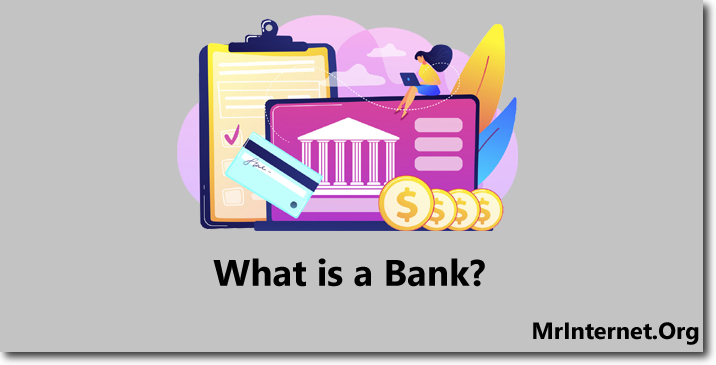A bank is a financial institution that provides a range of services, including accepting deposits, making loans, and facilitating the transfer of funds. The primary function of a bank is to act as a financial intermediary, connecting individuals and businesses with surplus funds (depositors) to those in need of funds (borrowers).
Banks are regulated by government agencies to ensure the stability and integrity of the financial system. They are also required to hold a certain amount of capital, which acts as a cushion to absorb losses and protect depositors in the event the bank experiences financial difficulties.
Types of Banks
There are different types of banks operating around the world and they are,
- Commercial Banks.
- Investment Banks.
- Neobanks.
- And Central Banks.
Commercial Banks
Commercial banks, the most common type, provide various financial services to individuals and businesses, including checking and savings accounts, loans, credit cards, and investment products.
Investment Banks
Investment banks specialize in underwriting, issuing, and trading securities, as well as providing financial advice to corporations and governments.
Neobanks
Neobanks are digital-only banks that allow users to open and operate a savings bank account using an app. This type of bank is a great choice for those people who prefer a digital-only experience. But sometimes little to no physical locations can be a problem.
Central Banks
Central banks, such as the Reserve Bank of India, are responsible for implementing monetary policy and regulating the supply of money in the economy.
In addition to their traditional functions, banks have also embraced technology and now offer a wide range of online and mobile services.
Advantages of Banks
- Protection of deposits: Most countries have deposit insurance schemes that protect depositors if the bank becomes insolvent or experiences financial difficulties. This means that if the bank goes bankrupt, depositors will still be able to recover at least a portion of their funds.
- Wide range of financial services: Banks offer a variety of financial services, including checking and savings accounts, loans, credit cards, and investment products. These services can help individuals and businesses manage their finances, save for the future, and access credit when needed.
- Convenience: Many banks offer online and mobile banking services, which allow customers to access their accounts, pay bills and conduct other financial transactions from anywhere with an internet connection.
- Regulation: Banks are regulated by government agencies to ensure the stability and integrity of the financial system. This regulatory oversight helps to reduce the risk of financial fraud and mismanagement.
- Professional expertise: Banks employ trained financial professionals who can provide advice and guidance on financial matters. This can be especially helpful for individuals and businesses who are not financial experts.
- Credit-building opportunities: Using a bank to borrow money and make timely payments can help build a good credit score, which can make it easier to qualify for loans and other financial products in the future.
Disadvantages
- Fees: Banks may charge fees for services such as account maintenance, overdrafts, and ATM usage. These fees can add up over time and may impact the overall cost of using a bank.
- Lack of control over funds: When you deposit money in a bank, you are entrusting the bank with your funds. This means that you do not have direct control over your money and may need to wait for the bank to process transactions or transfer funds.
- Limited interest on deposits: Banks are not always able to offer the highest interest rates on deposits. This means that the money you have in a bank may not grow as quickly as it would if it were invested in other financial instruments with higher returns.
- Cybersecurity risks: While banks have measures in place to protect against cyber threats, there is always a risk that personal and financial information could be compromised.
- Potential for fraud: Although rare, there have been instances of bank employees engaging in fraudulent activity. This can result in financial losses for customers.
- Limited access to cash: While many banks offer ATM networks and other options for accessing cash, there may be times when it is difficult to withdraw funds. This can be a problem in emergency situations or when traveling to areas with limited banking infrastructure.
Conclusion
Today, banks play a vital role in the global economy, providing the financial infrastructure necessary for individuals and businesses to conduct transactions and manage their finances. While the banking industry has undergone significant changes over the years, the fundamental role of banks as financial intermediaries remains unchanged.
